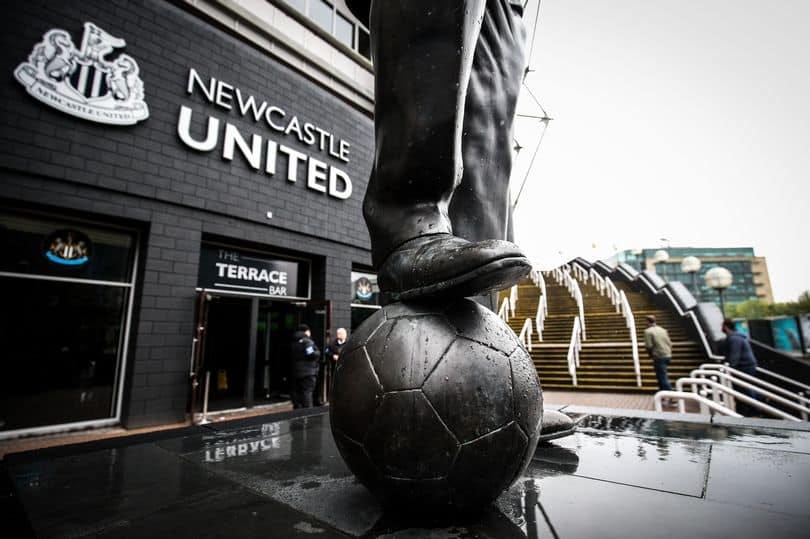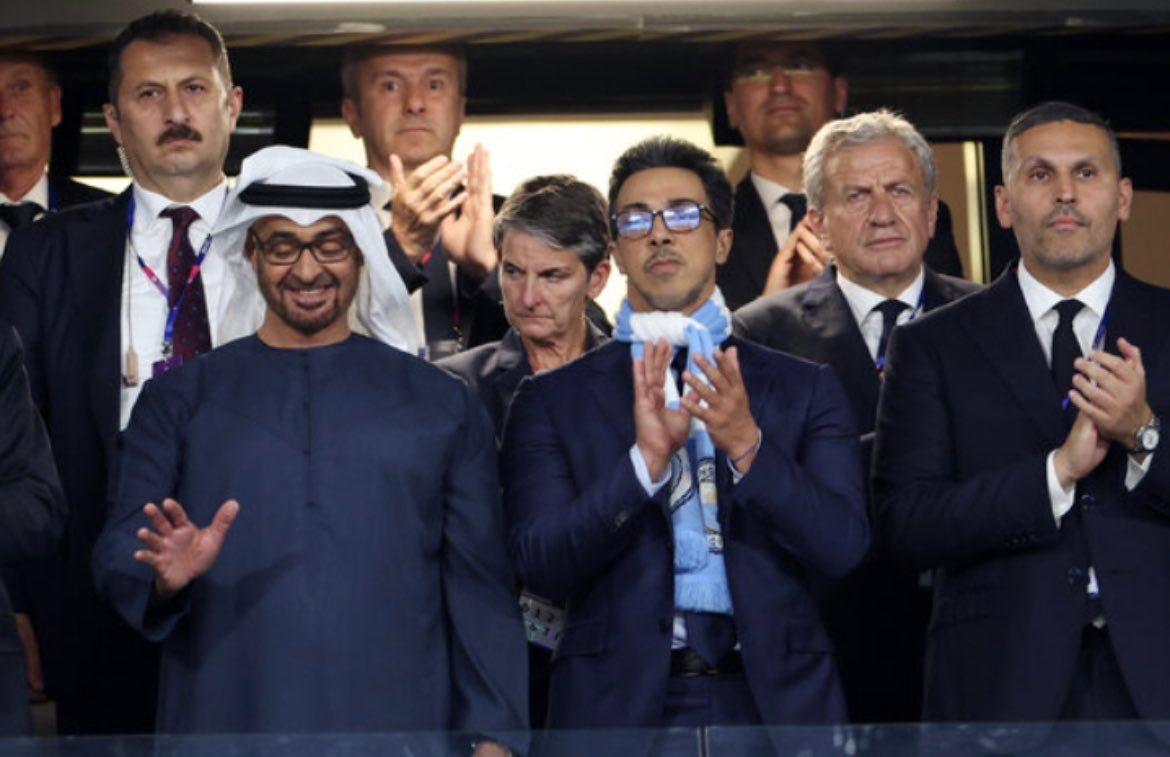Premier League faces demands to curb state-owned football clubs
Gulf-focused human rights organizations sent letters to the Premier League and the British government calling on them to address state ownership of football clubs.
Ahead of the start of the new English Premier League season today, several NGOs working on human rights in the Gulf region have sent letters to the Premier League and the British Government, imploring them to address mounting concerns over Gulf state ownership of English football clubs.
These Gulf-oriented NGOs, including ALQST for Human Rights, Emirates Detainees Advocacy Centre (EDAC), European Saudi Organization for Human Rights (ESOHR), Gulf Centre for Human Rights (GCHR), and International Campaign for Freedom in the United Arab Emirates (ICFUAE), asserted that the ownership of Premier League clubs bestows a handful of Gulf nations with an unwarranted level of political, social, and cultural authority, enabling them to expand their sphere of influence while continuing to perpetuate human rights violations.
The letters cite the Emirati ownership of Manchester City, the Saudi Arabia-led takeover of Newcastle United, along with Qatar’s potential purchase of Manchester United and implores the Premier League and the UK government to implement safeguards that prevent future takeovers of English football clubs.
“We remain concerned that the political, social, and cultural power associated with ownership of top English football clubs grants foreign states undue influence, and provides cover for state authorities that continue to flagrantly commit grave human rights abuses,” read the letter addressed to Richard Masters, Chief Executive and Director of The Premier League.
“It is imperative that the Premier League adopts and implements sufficiently objective and robust ownership criteria to prohibit the takeover of English football clubs by individuals or entities susceptible to the influence of state actors or associated with human rights violations.”
In a similar letter sent to Lucy Frazer, Secretary of State for Culture, Media and Sport, and Nigel Huddleston, Minister of State at the Department for Business and Trade, the group implored the government to implement measures that prevent financial entities such as Saudi Arabia's Public Investment Fund (PIF) and the United Arab Emirates (UAE)'s Abu Dhabi United Group (ADUG), from wielding any degree of ownership control over a club in the Premier League.
The PIF, Saudi Arabia’s sovereign wealth fund, acquired a majority stake in Newcastle United in October 2021. At the time, the Premier League justified the Saudi-led takeover after receiving what it described as “legally binding assurances” that the kingdom would not control the football club, even though the PIF happens to be the investment arm of the Saudi state and is chaired by the kingdom’s de facto ruler Mohammed bin Salman. The PIF has since bought a controlling share in Saudi Arabia’s four biggest football clubs —Al-Ahli, Al-Ittihad, Al-Hilal, and Al-Nassr—in an attempt to turn the country’s domestic league into a hotbed for global talent. The clubs, in turn, have since seduced some of the world’s top players to join their teams with extraordinary deals that could be worth more than $1 billion in wages for 20 foreign players.
The kingdom’s sports investments also include biannual World Wrestling Entertainment (WWE) shows, a yearly Formula 1 Grand Prix, the world’s richest horse race, heavyweight boxing showdowns and a recent merger (read: hostile takeover) with the PGA Tour. These unprecedented investments in the global sports industry—investments that surpass $8 billion—are part of the kingdom’s effort to increase its soft power on the world stage, a strategy that appears to be working.
According to The Athletic’s Adam Crafton, the UK government—led by then-prime minister Boris Johnson—considered the possible failure of Saudi’s takeover of Newcastle United to be an “immediate risk” to the country’s bilateral relationship with the Gulf state.
Not only does this raise concerns about whether the British government attempted to influence the takeover, it underscores the fact that UK officials viewed Saudi’s sports investments in the country as favourable to its overall diplomatic ties with the kingdom.
Meanwhile, the United Arab Emirates continues to reap the soft power influence from Emirati royal Sheikh Mansour bin Zayed Al Nahyan’s purchase of Manchester City in 2008. Sheikh Mansour, who has an estimated individual net worth of at least $17 billion and a family fortune of about $1 trillion, quickly transformed Manchester City into one of the richest and most dominant sides in the sport.
City went on to win seven Premier League titles in 12 years, as well as the elusive UEFA Champion’s League in June. The teams success arguably helped expand Abu Dhabi’s soft power influence through sports, while presenting a favourable image as magnanimous, football-loving investors. This became especially beneficial when Abu Dhabi sought to invest in Manchester’s real estate market.
According to report published by English researchers in 2022, City benefited from a “sweetheart deal” with the local city council that allowed them to buy valuable land in Manchester for greatly reduced prices. The report added that the “traceable rental and sales income streams” from the 1,468 homes built on the sites so far “flow to Abu Dhabi interests only.”
However, the UAE isn’t the only Gulf state seeking to control one of Manchester’s cultural assets. Sheikh Jassim bin Hamad bin Jassim Al Thani, a member of the ruling family in Qatar, is currently in talks to potentially buy Manchester United from the Glazer family. If the deal is completed, Saudi Arabia, the United Arab Emirates and Qatar will be in control of some of the most influential clubs in the Premier League.
Concluding their letter addressed to UK officials, the NGOs called on the British government to “explicitly prohibit takeovers of English football clubs by individuals or entities susceptible to the influence of state actors or associated with human rights violations” and to “mandate the new independent regulator to identify and implement strategies to phase out state involvement in English football.”
“Allowing state actors, especially those with poor human rights records such as Saudi Arabia, the UAE and Qatar, to achieve a foothold in English football poses a serious risk to the integrity and very ethos of the beautiful game.”
Sports Politika is a newsletter about the intersection of sports, power and politics. If you like what you see, upgrade to a paid subscription ( or gift a subscription if you already have your own). We would appreciate if you could also like the post and let us know what you think in the comment section below.





This might be a case of too little too late. Can't imagine PL or UK gov changing stance here.
The owners of City actually have far better record than the bulk of American owners (they have invested massively in Manchester). It seems to me that you can't discriminate and as we know the ownership structures are such that legally they aren't state owned. Just like the PGA isn't. If we ban people from the Gulf on moral grounds, then what about owners from stars like Texas and Florida. Two states that discriminate against women (abortion rights) and love executing people. I'm not supporting the PL here, just suggesting it's a far more complex issue. Then you get into owners from Asia who tend to be heavily linked with state owned fims too. And then I look at the owners of US franchises in NFL, NBA, MLB etc and let's be honest there's plenty I wouldn't want to have a drink with (and who have very strong links to the US Government). And then we have the owners of the WWE and UFC (and the King who's brother was Obama's key man!!)... I would argue the US is using the PL for sift power in the same way as the Gulf stated (and the GB go does too).